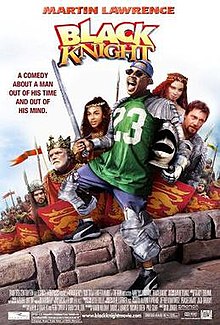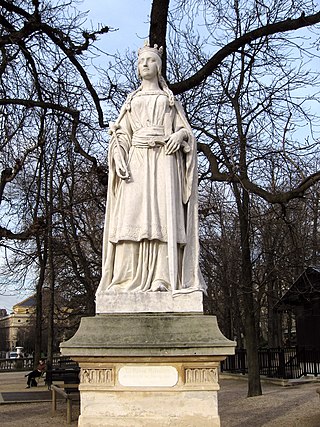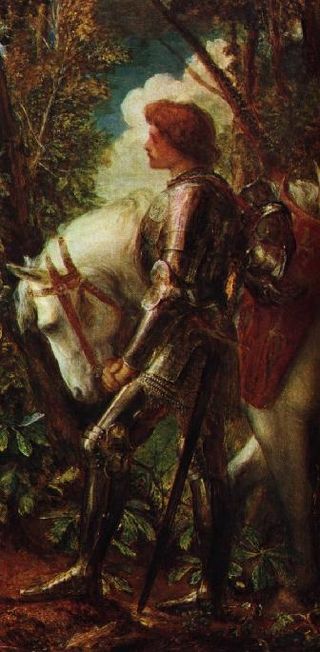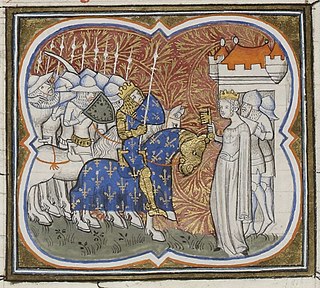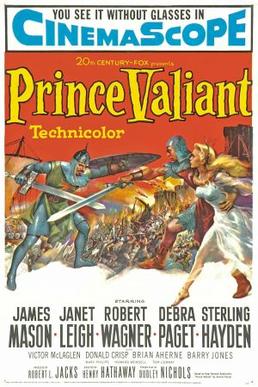Plot
Slacker Jamal Walker works at Medieval World theme park, which is about to have big competition from Castle World. Mostly Jamal’s boss is disappointed in him for running away from responsibility. While cleaning the moat, he tries to retrieve a medallion and gets sucked into 1328 England.
Meeting the drunkard Knolte, then finding what he believes is Castle World, he goes to investigate. They believe he is a French Moor, from Normandy, as he says he is from Florence and Normandie, a famous intersection in LA.
Jamal is taken to King Leo, who assumes he is the Normandy messenger he's expecting to unite England and Normandy. He realizes it isn't a theme park after witnessing the beheading of a rebel leader. Introducing himself as Jamal "Sky" Walker, his high school basketball nickname, he gains the king's trust by accidentally preventing his assassination and is made a lord and head of security.
Nubian Chambermaid Victoria tells Jamal the king overthrew the former queen, but he tells her he can't help. Debating with her, she insists his medallion deems him to be a man of honor. However she leaves, frustrated with his cowardice.
Later that night, Princess Regina, the king's daughter who is infatuated with Jamal, sneaks into his bed. He believes she is Victoria, so sleeps with her. The real Norman messenger arrives, seeking Princess Regina's hand in marriage for his liege, so Jamal is exposed as a fraud. The infuriated king throws him into the dungeon to be executed.
In the dungeon, two failed assassins talk of the Black Knight, who could not be bought nor bribed, and fought for justice. He had been swallowed whole with a gold sword by a fierce dragon, so he cut himself from its belly and could then breathe the fire of the dragon.
Brought forth for execution, as a last resort Jamal claims to be a sorcerer and attempts to scare the superstitious onlookers to escape. As the executioner begins to choke on an apple, the crowd believes Jamal cast a spell of death upon him. In the commotion, he saves him with the Heimlich Maneuver.
Using this distraction and flaming arrows fired from outside the walls, Jamal escapes the castle with Victoria and Knolte's aid. He learns that Knolte had been the former queen's knight who was disgraced when she lost her throne. Jamal soon understands he must help overthrow King Leo and help restore the queen.
With some effort, Jamal convinces the decimated rebels and townsfolk to overthrow the king together while noting that King Leo is no King Arthur. Using modern-day tactics from American football and pro wrestling, he gives the peasants the means to fight the armed and armored king's guards. Out of gratitude, Knolte teaches Jamal some basic sword-fighting manoeuvres, and also suggests a way to have an advantage in the upcoming battle.
The next day, Knolte and the rebels storm the castle, only to be surrounded by guards and Leo's bodyguard, Percival. Seemingly outmatched, the rebels are pushed back. The tide turns briefly when the legendary Black Knight charges in, breathing fire and scattering the guards, but he falls from his horse and is revealed to be Jamal.
Using their newfound skills, the peasants overpower the guards. But Percival's longbow severely wounds Knolte, and he takes Victoria hostage. When a scared King Leo asks Percival for safety, seeing Leo as pathetic and weak, Percival kills Leo and he is thrown into the moat. Charging to the rescue, Jamal surprises Percival with his fighting skills, knocking him out and rescuing Victoria. However, Percival comes to and is then shot dead by Knolte before he can kill Jamal. Jubilation abounds when the rebels are victorious.
After the queen's reign is restored, Jamal is knighted. During the dubbing, he awakes back at Medieval World surrounded by his co-workers and a medical team, who saved him from the moat, implying that his entire adventure was a dream. Jamal's whole attitude changes from his experience, and he helps to improve Medieval World, so they won't go out of business.
Later on, walking around the new Medieval World, Jamal meets Nicole, who looks just like Victoria. They talk a little, and he asks her out to lunch. Unfortunately, he forgets to get her number, and when he runs after her, he accidentally falls back into the moat, waking up in the Colosseum of Ancient Rome, where he is about to be devoured by lions, so he runs.
